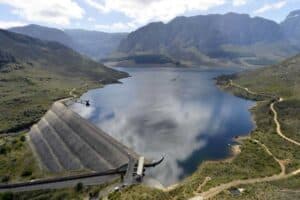Papua New Guinea police wielding metal rods cleared the final 320 holdouts from a shuttered Australian refugee camp Friday, ending a 24-day standoff that put a global spotlight on Canberra's tough policy on asylum-seekers.
Videos and photos posted by the detainees showed police moving through the camp on Manus Island, swinging long metal batons and pushing men towards buses bound for PNG-run centres elsewhere on the island.
Pictures showed men with some scrapes and cuts they said came from being hit and dragged by police.
Several hours later, PNG and Australian officials confirmed the camp on a former PNG naval base had been emptied as ordered by the PNG Supreme Court, which said last year that the Canberra-run detention centre violated the country’s constitution.
“It’s empty. The military have taken back their base,” PNG police spokesman Dominic Kakas told AFP.
Australia’s Immigration Minister Peter Dutton welcomed the news, and accused refugees and their advocates of making “inaccurate and exaggerated claims of violence and injuries” during the police operation.
Dutton told reporters in Brisbane he was aware of three people with minor injuries, but the UN refugee agency UNHCR said its staff had received reports that several men were “seriously injured”.
Canberra set up the Manus camp and a similar complex on the Pacific island nation of Nauru under a policy of “offshore detention” designed to choke off the flow of migrants trying to reach Australia by boat.
The camps were described as “processing centres” where authorities would determine the legal status of detainees and then arrange resettlement for verified refugees.
But the policy stalled, and an agreement reached with former US president Barack Obama’s administration to take a number of the refugees was put on hold when Donald Trump was elected a year ago. Only 24 refugees have moved to the US.
Around 600 men, most of them with refugee status, were left stuck on Manus since 2013 with diminishing hope of resettlement.
– What’s next? –
Following the PNG court ruling, Australia declared Manus closed on October 31 and shut off supplies of food, water and electricity to the camp so detainees would move voluntarily to the PNG-managed “transition centres”.
The refugees refused to move, fearing for their safety among a local population where many opposed their presence.
They also worried that once no longer under Australian control they would lose any leverage they had for obtaining resettlement in third countries.
“What we want now is for people to accept their offer to go to the United States, to accept the resettlement package and go back to their country of origin, to settle in PNG, go to Nauru,” Dutton said.
“But under no circumstances are people coming to Australia.”
While New Zealand’s Prime Minister Jacinda Ardern has kept on the table her nation’s offer of taking 150 refugees from Manus or Nauru, Dutton appeared to close the door on the option.
“The intelligence has said to us if you send people to New Zealand, the boats (taking asylum-seekers to Australia) will restart and New Zealand is not an option on the table for us now.”
Australian Prime Minister Malcolm Turnbull, welcoming the end of the confrontation at Manus Friday, stressed that the refugees were now under PNG authority.
Turnbull’s government has come under sharp international criticism during the standoff in Manus as conditions for the detainees deteriorated.
UNHCR’s Australia-based representative Thomas Albrecht warned later Thursday there was a “grave risk of further deterioration, and of further damage to extremely vulnerable human beings”.
The agency added that it was particularly concerned recognised refugees were being offered enticements to voluntarily return to their home countries, where some could face deteriorating human rights conditions.
After Australia withdrew from the Manus camp, PNG police initially engaged in an effort dubbed “Helpim Friends” to entice refugees to move voluntarily to the new centres.
About 200 men complied, but 400 remained, leading to police raids Thursday and Friday to forcibly clear the camp.
Amy Frew, a lawyer at the Australia-based Human Rights Law Centre, said the violent resolution of the standoff bodes ill for the refugees’ future.
“After four and a half years of limbo and uncertainty they still have nowhere safe to go,” she said.
“This morning’s actions show that whatever they do, wherever they go, their safety cannot be guaranteed until they are evacuated from Papua New Guinea.”






